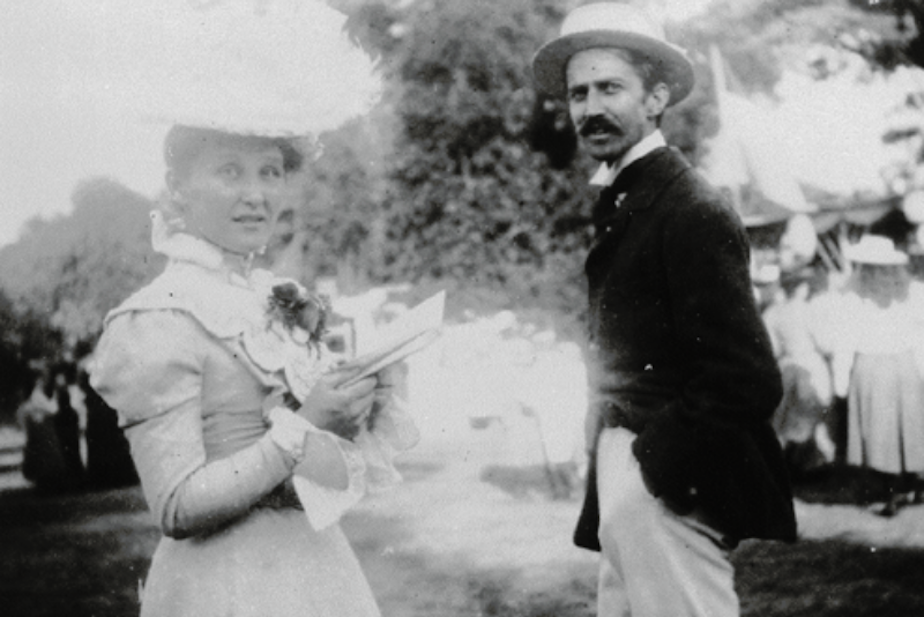Paul Auster celebrates the precocious, abbreviated life and work of Stephen Crane

In the months before his death, the writer Stephen Crane and his common-law wife Cora hosted a Christmas holiday celebration at a home they had rented in Sussex, England. The party reportedly lasted several days and was attended by Joseph Conrad, Henry James, and H. G. Wells, among others. That was apparently how Stephen and Cora rolled.
Crane was only 28 years old when he died from tuberculosis in 1900, but had packed a wealth of writing and adventures into his short life. On the writing side, he produced short stories, novellas, poems, journalism, war reportage, and his most famous work, the novel The Red Badge of Courage.
The novelist Paul Auster spent the last three years researching and writing about Crane for his biography Burning Boy: The Life and Work of Stephen Crane. Auster is on a bit of a mission to resurrect Crane as a genius of American literature. As he shares stories, you hear a kind of awe for Crane’s prodigious work and life, and perhaps a degree of wonder about what else Crane might have accomplished had he lived longer.
Paul Auster is the bestselling author of Winter Journal, Sunset Park, Invisible, The Book of Illusions, and The New York Trilogy. Here, he reads from and discusses his work with poet, essayist, and critic Eric Lorberer. The Elliott Bay Book Company presented their conversation on November 29, 2021.
If you have any feedback on this episode, you can email me at jobrien@kuow.org
Or you can just click the feedback button on the edge of this page. Reach out. We're listening.




